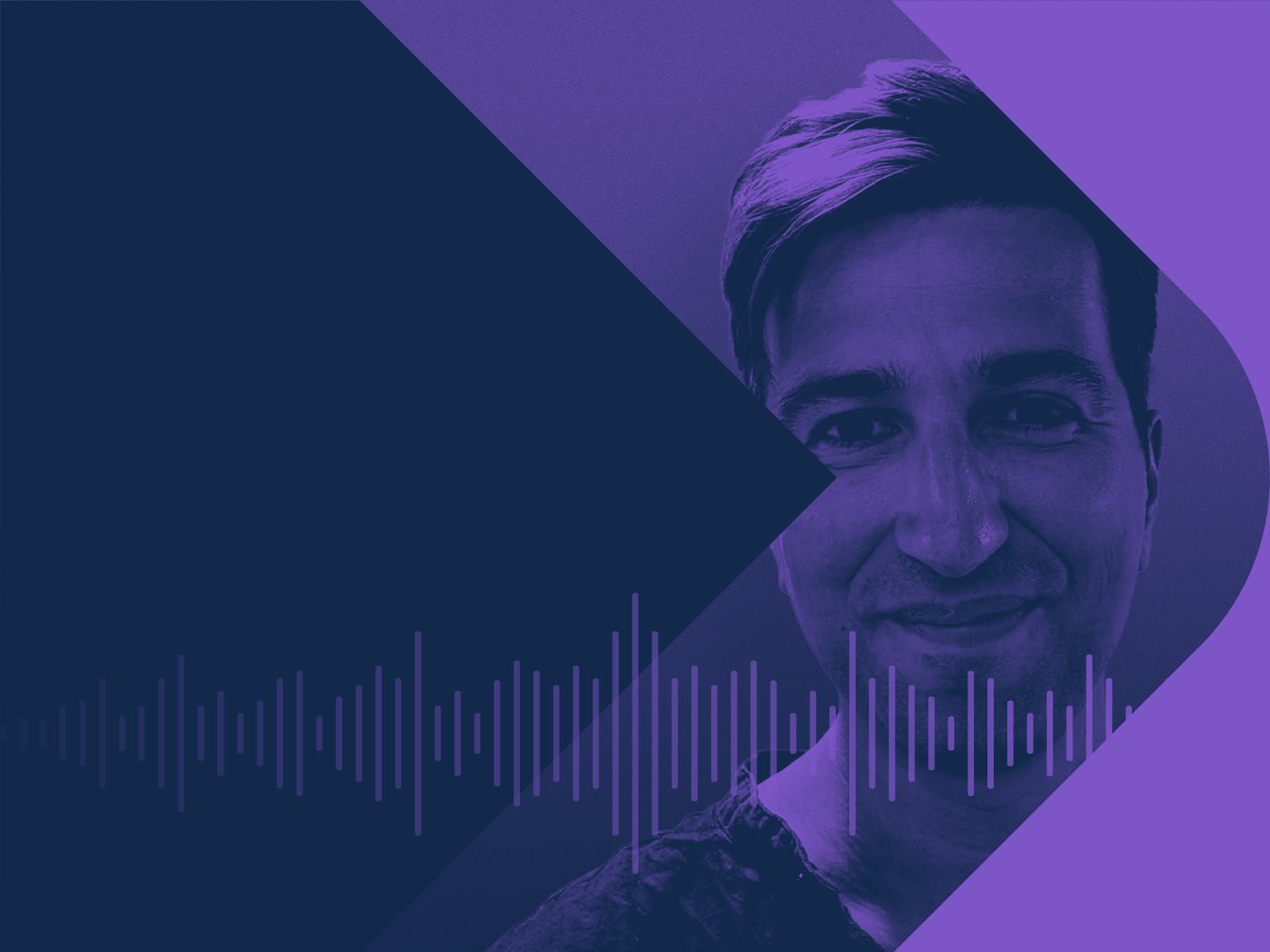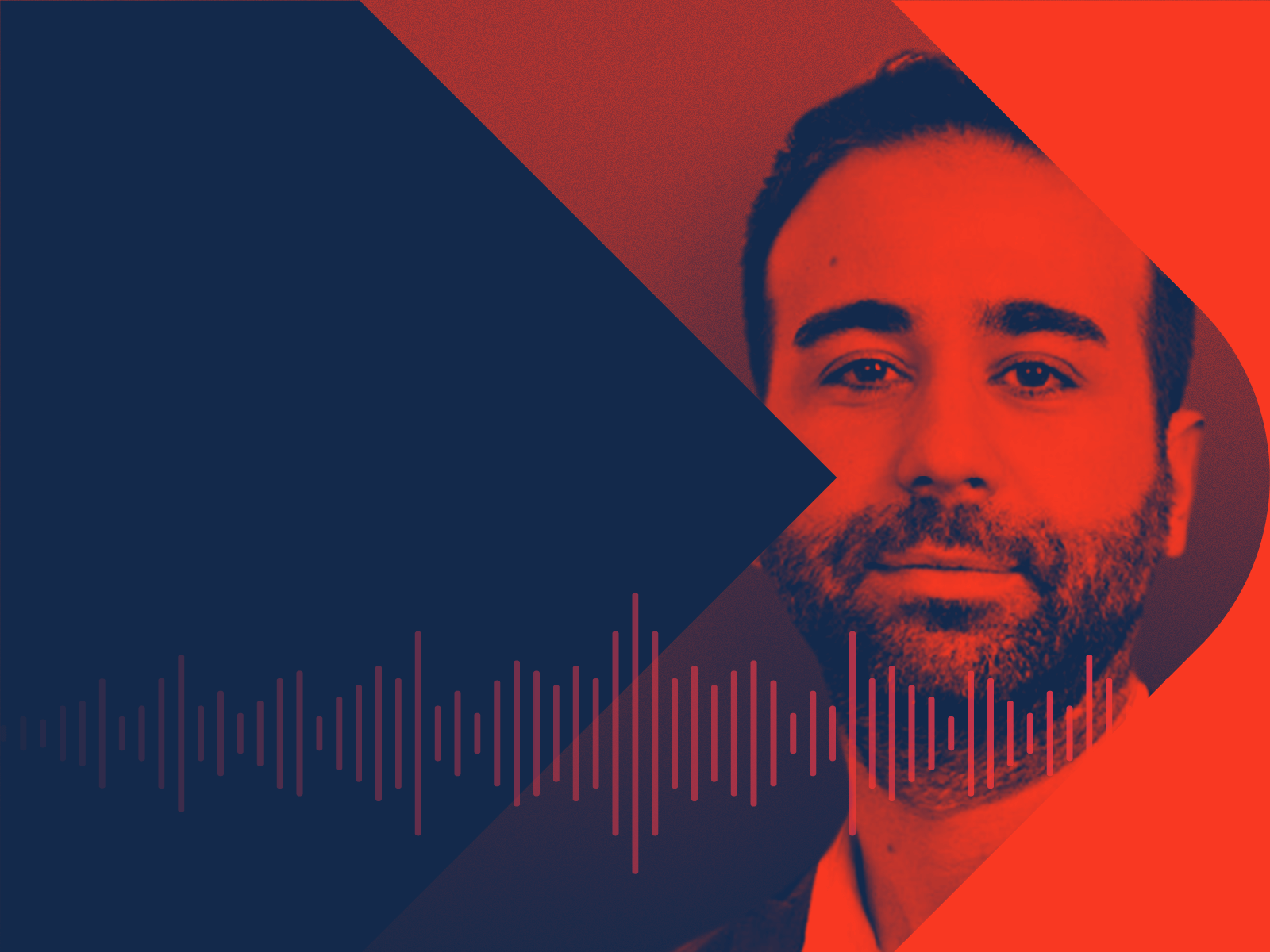“Drop the C in CTV”
The world of TV is rapidly evolving, with more viewing options than ever before—linear, BVOD, SVOD, ad-supported, or ad-free. Viewer habits are changing just as quickly, with broadcasters, streaming services, and others trying to keep pace while also ensuring privacy. Among these organizations, Samsung is at the forefront, innovating and putting the consumer’s privacy first.
In the latest episode of our Identity Architects podcast, InfoSum's VP, Corporate Marketing, Ben Cicchetti, sat down with Andy Jones, Head of UK Sales at Samsung Ads, to discuss privacy, CTV, market fragmentation, and more.
“Put yourself in the position of the viewer. Ultimately the customers, they are not sitting down and saying, ‘I fancy watching a bit of BVOD tonight or SVOD’. It's a really exciting time, mainly because we are in a continued period of change. [...] The viewer is more in control than ever before, and it just means it's a really challenging time in this current TV market. But there's got to come a time pretty soon that we just drop the C in CTV, because this is just the future of TV and there are lots of opportunities to embrace.”
That's so true. TV certainly offers lots of opportunities for different types of companies—not only broadcasters and streaming services but also TV manufacturers like Samsung. These devices are literally sitting in the homes of millions of people, all connected to the internet.
“When you're talking about media and when we're talking about TV in the past, you naturally think about the broadcasters, or if you're looking at internet and search, you'll be thinking about Google. You're never thinking about the device that you're actually watching on. And so what we're trying to educate the market on is, take a bit of a step back and - of course, you might be watching that service or that content - but you’re watching glass, there's nuts and bolts, and there's a device there that you're actually watching.”
From a viewer's perspective, you’re watching a movie or show, a certain channel, or a streaming service. The days of just ‘watching TV’ are long gone—now it’s ‘watching Netflix’. While change and such a diverse offering bring exciting opportunities, they also bring challenges. One significant challenge the industry is facing is fragmentation.
“Fragmentation is caused by different services being viewed on multiple devices, so if people are at home watching their TV, it might be on their set-top box, via their games console, through their Chrome Stikc, or streaming puck. Or it might even be content they're watching on their mobile or tablet. Increasingly though, we're seeing smart TVs being that one single source. We're seeing a rapid decline in additional devices that are connected to our TVs [...] In 2024 we're seeing less than 20% of our TVs that have a connected set-top box.”
This is perhaps the greatest shift in consumer behavior when it comes to TV. With far fewer people watching linear TV, and the widespread adoption of TVs connected to the internet, consumers are entering the world of video and TV through the homescreen on their smart TVs. It’s here that they choose to view content through various apps from the broadcasters, streaming platforms, and digital providers. It’s becoming prime TV real estate and offers a high level of convenience for consumers.
“People are cutting the chord, they're getting rid of their set-top box subscriptions and finding all the content they want to watch within that smart TV ecosystem. So that's a general trend that's actually going to help the ecosystem become less fragmented because it's actually all being viewed on one device. That's the trend we're seeing.”
With TVs being online, there’s the whole topic of data privacy. So how does Samsung do it?
“We are first and foremost an electronics business, and now we're creating a media entity off the back of that, so without getting consent from the customer, the person who's actually bought our device, we wouldn't serve any ads. And so the moment that TV is turned on [...] you will consent to pretty much anything just to get the TV up and running. So we know that the first part of the consent is not enough, and within the first week we direct them to an app that we created on all of our TVs which is called adchoices, so that's where we explain in more detail the privacy and the control they've got, and the ability to opt in or out of advertising.”
That part is so important. Understanding the consumer, knowing how they’ll react and, in this instance, handling setting up their new TV. Putting the customer’s privacy front and center is not just good for business but the right thing to do.
“My first call whenever we're launching any new product is to our privacy team and that's for the very good reason that we're not just protecting us as a media entity. But we're protecting the customer from a hardware point of view. It's something that we are quite often quite slow at but I think it’s a really important reason for being slow is that we're doing everything to be as compliant as we possibly can be.”
TV is certainly an incredibly exciting space, and it’s evolving quickly. One of the things we saw happen in 2023 was the convergence of retail media and BVOD services. So, will Samsung Ads' offering converge with other media offerings similarly?
“I think part of the secret of Samsung’s success is the constant need for innovation. So for our 2022/2023 model TVs, we've got an environment within that TV that's called a gaming hub. So we're working with some of the biggest games consoles and biggest gaming brands. Because there's no need to connect your console into a TV, this gaming hub environment is a cloud-based gaming environment. So all you need to do is connect your controller via Bluetooth to the TV, have an Xbox pass, for instance, and then you're automatically syncing and playing games on that device.”
It's great to hear about what Samsung has already integrated into the TV environment. What’s the long-term vision for Samsung Ads?
“We're 6/7 years in and we're still only just getting started. [...] From Samsung Ads, our long-term vision is getting closer to advertisers. Working with them, understanding their objectives, and helping them to achieve their objectives. And ultimately capitalize on this total TV landscape because we are still talking about CTV. Let's drop the C. Let's talk about TV. It's going to continue to evolve. But what it's not going to do is go backwards.”
Thanks, Andy, for the chat!





